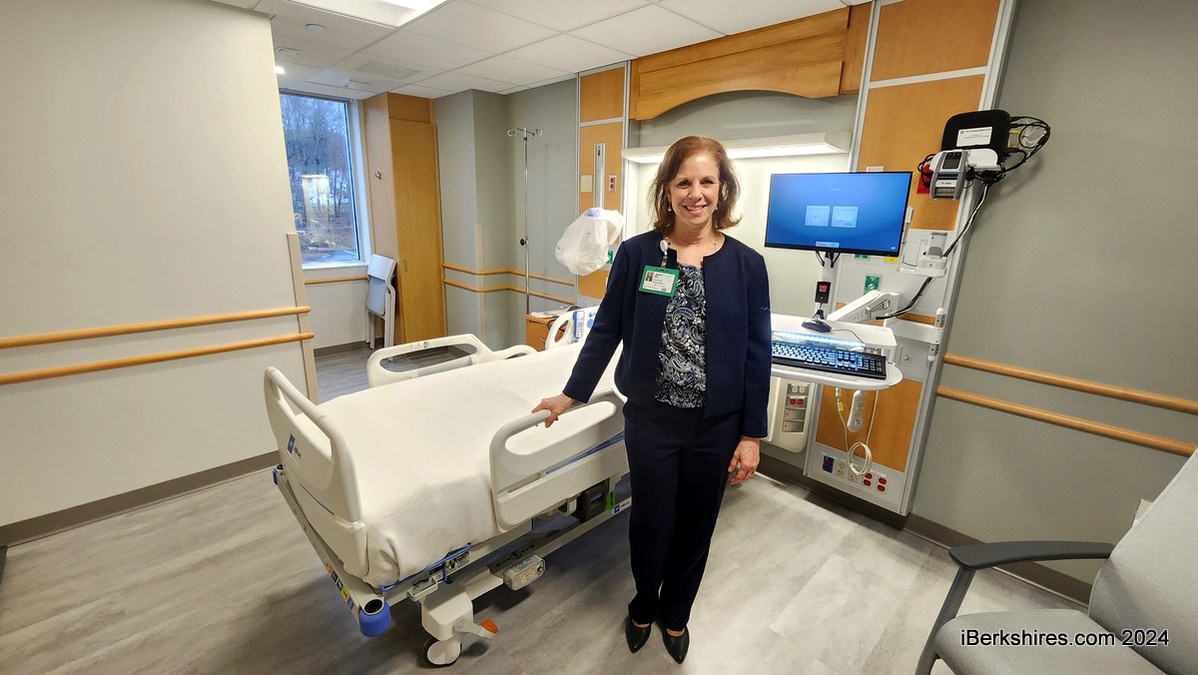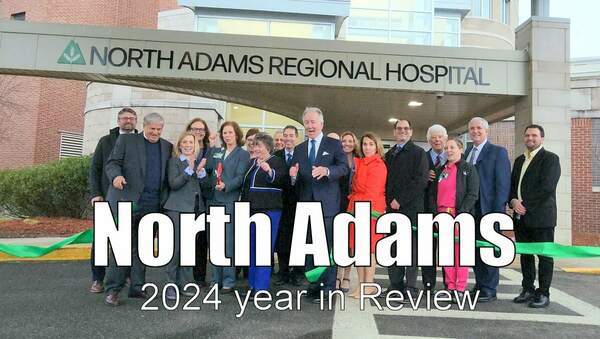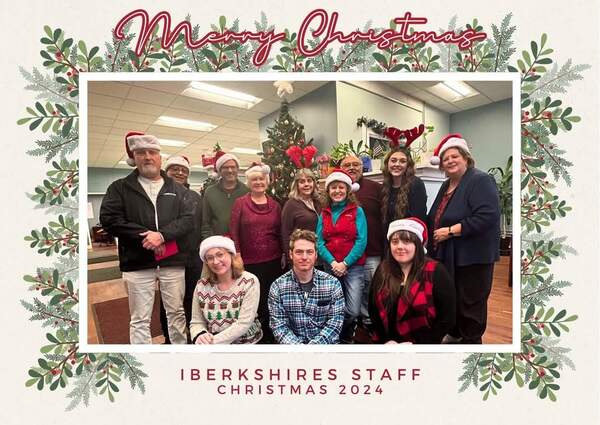
Colleges Training Teachers 'For Whatever Comes Next' in Age of COVID
NORTH ADAMS, Mass. — Before the Massachusetts College of Liberal Arts was the Massachusetts College of Liberal Arts, it was North Adams State College.
Before that, it was the State Teachers College of North Adams.
Before that, it was the North Adams Normal School.
In 2020, there is nothing normal about the way teachers are trained.
When the world turned upside down in March, MCLA professor Nicholas Stroud, like educators across the country, had to rethink how he teaches. But as the chair of the school's education department, he also had to think about what he teaches.
"One of the things that is true of our department is we're always thinking about modeling whatever kind of teaching and instruction that we want our students to want to think about taking up," Stroud said. "Along those lines, all of our full-time faculty have been online teaching certified.
"And we do most — if not all — of our classes currently remotely. Some are synchronous. Some are asynchronous. Some are a mix. But we're always trying to model good teaching in that sense."
Begun as a "normal school," a term for teacher-training centers that goes back to 17th century France, MCLA offers undergraduate and graduate programs with licensure in pre-kindergarten through 12th grade.
Although everyone hopes that the 21st century job market MCLA's graduates enter will have in-person instruction throughout elementary and secondary education, the last nine months have shown that teachers need different skills than anyone thought they needed a year ago.
The shift to remote and hybrid learning in public education has not driven a sea change in the way teachers are taught. But education programs like MCLA's have seen some changes.
"One of the unique things about teaching education is we're able to think about teaching and learning in the moment in a very meta way," Stroud said. "It's not a shift in material, but it's something that we've really labeled and been intentional about thinking about: the relational nature of teaching.
"How do you establish relationships with your students? How do we as faculty establish relationships with our students? … Sometimes it's through screens. Sometimes it's in person, but it's still not the same because everyone is wearing masks and socially distanced."
Ironically, the "new normal" of remote instruction has led to a return to basics, Stroud said.
"We're getting back to what teaching is all about," he said. "Fundamentally, it's a relationship. It has to be built on having relationships between the instructor, a teacher, a faculty member and their student. We're really paying close attention to that. Being thoughtful about that in our work is critically important."
From a technical standpoint, MCLA students were ahead of the curve when it came to the modes of online learning.
The college had been using the Canvas online learning platform for years — long before the pandemic came along — so students were familiar with how it worked. And online education was something professors talked about even before it became a necessity.
"We did some work in having them think and work, broadly speaking, with instructional technology," Stroud said. "But I would say we didn't do that much platform-specific work. We were more platform agnostic because, prior to even this summer, districts in our area were using at least three if not more management systems in addition to other technology."
"We put together some online modules through Canvas to help them not only learn more about Canvas but also what are some practices in remote instruction that they may think about using."
At Berkshire Community College, online lessons also were part of the process in the pre-COVID-19 world, according to Patricia Kay, chair of the education department.
"I usually teach face-to-face at the college, but I did use an online component for disseminating information, so my students were familiar with it," she said. "I really felt one step ahead of the game [in March] because at least my students were familiar with the online platform.
"This semester, my students are a little more familiar with it. But what they've been wanting to know is how does everything we're learning as best practice relate to or transfer to online teaching."
Like Stroud, Kay emphasized the importance of relationship-building in the classroom and the challenge teachers faced in fostering those relationships in the age of COVID-19.
"Teaching is social," she said. "It's about relationships, and it is different when you're meeting young children online. Some of my students are doing that right now in their practicums.
"It makes for lots of conversations like these: What is the difference? What is the same as if we were in the room with a person, and what is different? And how do we have to change up the things we are doing?"
And because they, themselves, are learning online, the college students get a better idea how to teach online.
"I'm modeling online the way I teach my students," Kay said. "So I'm walking around, and I'm pointing to different things in the room. I'm bringing up things in my hand and showing them for example and trying to bring it as much to life as I possibly can.
"Because, in the theory of early childhood education, we're going to learn the same lessons about the theorists. We're going to learn the same facts about how children grow and learn. We're going to learn the same facts about program models and why it's important to know different ones. What's different is: How do I make this come alive for students? I think that is what we're trying to translate into best practices for our college students."
One thing Kay is sure about: Teachers currently in the field are finding a way to deliver lessons. The problem, she says, is that education is about more than learning facts.
"I think teachers are very creative," she said. "I think a lot of teachers are innovative. And are they getting across the math and spelling and language arts? Probably, to the best of their ability. I'm not worried so much about the academic piece.
"I'm worried so much about the academic piece. But I am worried about the social and emotional piece. I'm worried about self esteem. I'm worried about mental health. I'm worried about children loving school, loving to learn. Because that's the critical piece. And that's hard to do online."
She also is worried about what hybrid and remote learning is doing to increase an existing divide between the haves and have-nots in society.
"Children who have parents who can scaffold their learning and support them and give them a lot of time, energy and effort are going to be OK," Kay said. "But children who may have a single parent, who may have a single parent who has to work or take care of other children in the home, those are the children who will suffer in this situation.
"We already aren't on a level playing field. There's a disparity in education for those kids and kids of more means. I think this is just going to add to the disparity out there. I think that's the piece that's most troublesome for me."
MCLA's education students — at the graduate and undergraduate level — are grappling with the same issues.
"We're being clear and thoughtful and taking a critical eye toward, how are the ways in which we teach or the structures we have in place disproportionately affecting marginalized communities," Stroud said. "Really thinking about those pieces is central to our work at MCLA.
"If you're teaching in a remote classroom, who are the students who are showing up? Who is not showing up? What does that mean, and how can we work with families and communities in a way that is really supportive of the needs of everyone? Those are big questions and definitely not ones with easy or straightforward answers."
In one sense, aspiring teachers who are soon to enter the field have a unique advantage in preparing for whatever shocks the system receives 10 or 20 years down the line.
"There are some students who are going to be doing their student teaching in spring semester for whom most of their field experiences have been during a pandemic," Stroud said. "It represents a really interesting moment.
"We sometimes say if you can learn how to teach in a pandemic, you can do the 'normal' teaching because there are so many additional changes that come up that are easier to do in a ‘normal' classroom, where not everyone is wearing masks, you have a regular number of kids in the classroom and everyone is there five days a week.
"We've been working since March 13 to give our kids experiences so they'll be ready for whatever comes next in terms of their teaching."
Tags: BCC, COVID-19, MCLA, remote learning, teacher,
More Coronavirus Updates
















